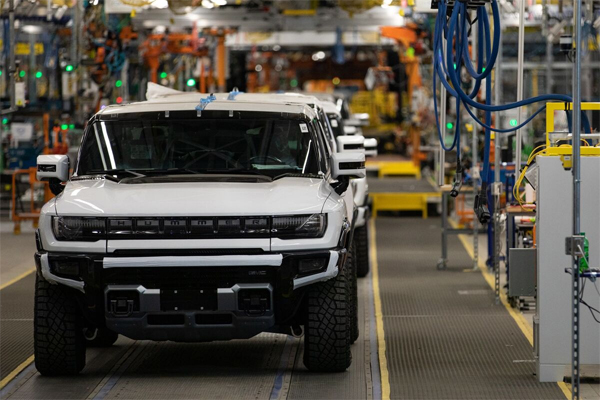
Beatriz Reis and Leonardo Lara, Bloomberg News
SAO PAULO
EnergiesNet.com 01 25 2024
General Motors Co. said it plans to invest 7 billion reais ($1.4 billion) into operations in Brazil over the next five years, as it seeks to accelerate production of electric vehicles in the South American nation that has so far been slow to embrace battery-powered cars.
The US company is the first of the traditional carmakers that operate in Brazil to announce investments since President Luiz Inacio Lula da Silva’s government introduced new guidelines for the local automotive sector in December. Rivals Volkswagen AG and Stellantis NV are also expected to announce new investment plans for Brazil this year.
The Green Mobility and Innovation program, dubbed “Mover,” includes fleet sustainability requirements and tax incentives for companies that invest in decarbonization and the production of new technologies. It is part of Lula’s broader efforts to foster a green transition of Latin America’s largest economy.
“Our investments in Brazil are focused on sustainability,” Fabio Rua, the vice president of GM South America, said at a Wednesday press conference in Brasilia, where he announced the plans after a meeting with Lula. “Our future is all electric.”
GM had been one of the few automakers skeptical of technologies in use in Brazil, where a traditional reliance on flex-fuel cars that use a mix of gasoline and ethanol have caused the country to lag the global transition to electric vehicles.
But discussions with the government gave the company legal certainty about how the Mover program would work, as well as an understanding that Lula’s administration is committed to fiscal responsibility, according to Rua.
“We are very positive, very excited about the perspectives that opened up for GM after the conversation we had with President Lula,” he said.
GM ended 2023 as the third-biggest seller of cars and light commercial vehicles in Brazil, with a 15% stake, according to Fenabrave, the country’s association of auto dealers. Only Fiat and Volkswagen are larger.
The company, which has said it wants to reach carbon neutrality by 2040, had been planning to replicate its global focus on EVs in Brazil, where electric cars comprised less than 0.5% of the market in June, according to the Brazilian Association of Automotive Vehicle Manufacturers.
“Brazil has the potential to be the third-largest global market for electrics,” Rua said in a July 2023 interview with Bloomberg News. “So why would we accept delaying that progress?”
GM still has some doubts about the impact the Mover program will have, but plans to test the Brazilian market to see how fast it will adopt these technologies, Rua said. Santiago Chamorro, the company’s president for South America, said last year that electric vehicles made in Brazil could also be exported to other countries.
The auto giant will continue to discuss issues like important tariffs with the government going forward, Rua said.
The announcement also followed some friction between GM and its employees in Brazil, after it attempted to cut roughly 1,200 jobs at three factories in the state of Sao Paulo, citing falling sales and exports. In response, workers launched an open-ended strike until GM in November canceled its plans for layoffs. It ultimately began a voluntary buyout program in December after negotiating with unions.
“The layoffs were one-off and short-term,” Rua said at the press conference. “GM’s intention is to keep employing, to keep growing.”
bloomberg.com 01 24 2024







